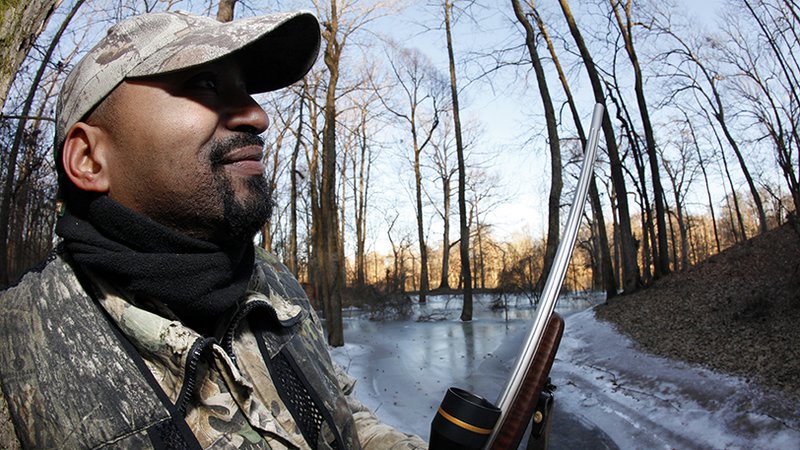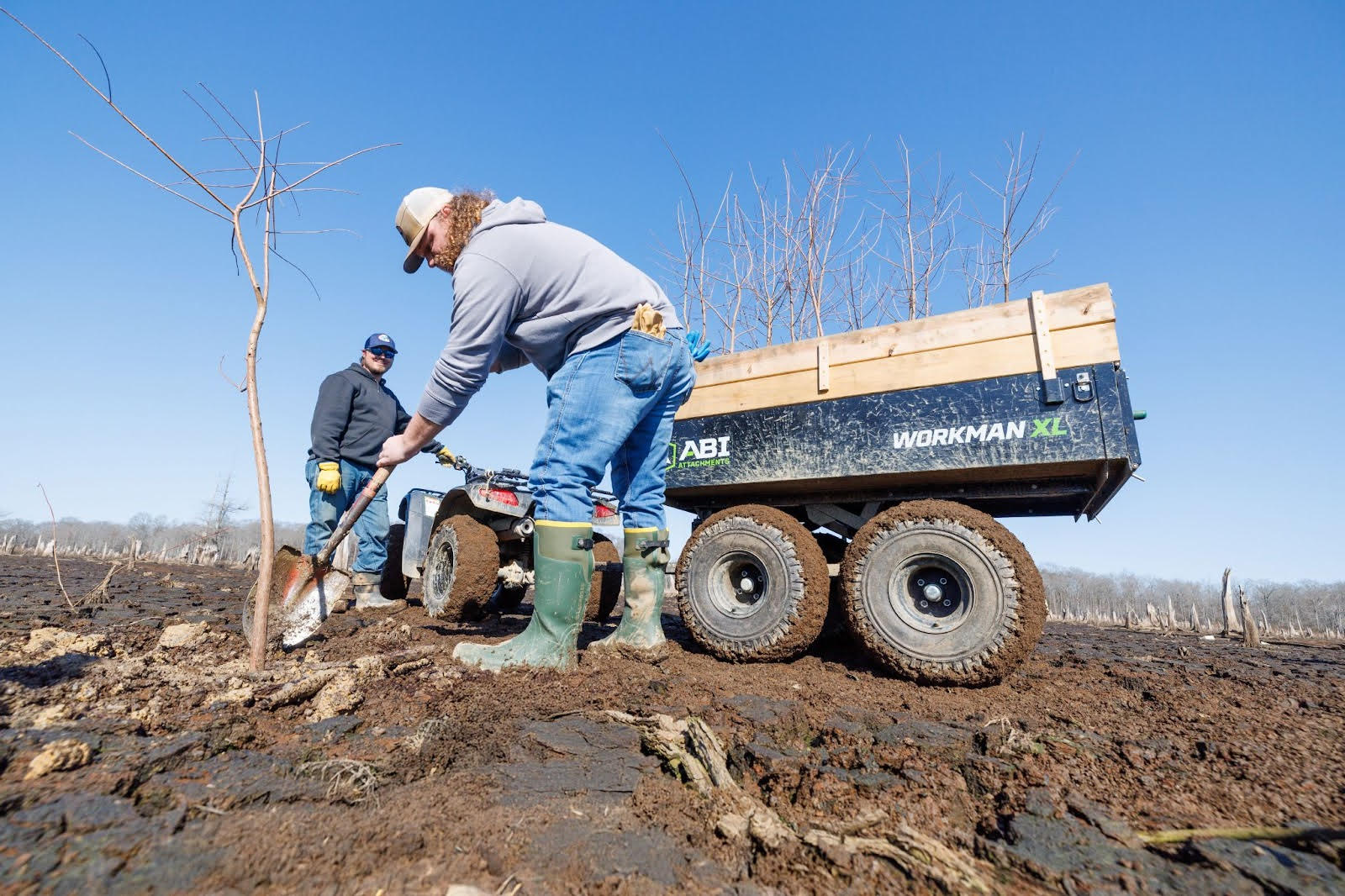Squirrels give good reason to get ‘stuck in a rut’
ON 12-13-2017

Dec. 13, 2017
Randy Zellers
Assistant Chief of Communications
The deer rut isn’t the only game in town when it comes to winter hunts that get the blood pumping. Mid- to late December beckons an intense period of breeding activity for another animal in the deer woods, and most people have watched it happen while sitting in their tree stand.
“Most folks will get on their deer stand during the Christmas deer hunt and see a parade of squirrels, chasing each other, barking, and creating so much noise you’d think there was a herd of deer walking behind you,” said Clifton Jackson, small game program coordinator for the Arkansas Game and Fish Commission. “You’ll see a bunch of them, nine or more even, all chasing each other around chattering back and forth. What’s going on is that a female is in heat and all the males are picking up on that scent.”
Because they belong to the same family of mammals as rodents like mice and rats, squirrels often are thought of as year-round breeders, pumping out litter after litter of young. In fact, gray squirrels and fox squirrels are seasonal breeders, much like deer. Squirrels typically only breed once or twice per year, depending on their age and available mast crop. According to “Squirrel Dog Basics” by David Osborne only 20 to 40 percent of adult squirrels will breed twice per year, even after exceptional mast crops.
Jackson says the spring rut usually occurs in mid-May, when squirrel season opens in Arkansas. This is when the young squirrels born in early spring leave the nest and the female becomes receptive again if enough food has been available. The second rut occurs in December, once the squirrels have cached a fair bit of acorns and nuts for winter.
“Squirrel hunting can get tough before the rut because the squirrels won’t stay still,” Jackson said. “In early fall, you’ll see them sit still and work on a nut or acorn. That will give you time to get off a good shot, but later in fall, they’re moving all over the place. Last weekend, I went with three other dedicated squirrel hunters, and we only killed about three squirrels with rifles. We saw dozens, but they wouldn’t sit still long enough for a clean shot. Once the rut kicks in, they get distracted and are much easier to get close to. They also will stop and chatter with each other and hold still long enough for a good shot.”
Late-season squirrel hunting offers a different challenge than October outings. The leaves have fallen from the trees, which makes it easier to see them, but it also makes you easier to see as well.
“A shotgun might help gather some for the freezer with all the movement you get this time of year, but getting close to them is much more difficult in December,” Jackson said. “Not only are the woods more open, but the leaves are on the ground and sound off to every step you take.”
Jackson always prefers a rimfire rifle, but really touts its use during late season because it will offer at least a chance at a longer shot instead of being busted trying to get within range.
Where to train your eyes to look for squirrels also changes with in winter. In early fall, you scan the trees for shaking branches and listen for acorn hulls raining to the forest floor. In winter, Jackson suggests keeping your focus lower when slipping through the woods in search of squirrels.
“Most of the acorns have either fallen to the ground or been tucked away in caches by now,” Jackson said. “So I try to look at chest level and below for movement.”
Squirrels usually don’t try to cause as much racket when the trees are bare and the leaves are piled high on the ground. They will run along logs, careen off tree trunks and work their way through branches to avoid giving away their position. That is, unless they’re in pursuit of a female in heat. Then they tend to lose their better judgment.
“I also look for areas where they are still scratching around in leaves, especially as dry as it has been this year.”
Jackson says that although much of the acorns in the woods have been eaten or “squirreled away” by now, those left are still in good condition because the drier than normal conditions have prevented them from rotting or germinating. Squirrels will still bury a few here and there, and hunters can see where they are kicking up leaves to get to them.
The late season also offers the advantage of being able to catch a few more minutes of shuteye before heading to the woods. Hunters walking the woods during early season may have to watch a lot of movement before the sun peaks over the horizon to present a clear shot. In winter, the bushytails tend to wait until they have a little light before venturing from their nests and dens to warm up.
Getting up a little later makes it much easier to convince kids to join you in the woods as well. Sitting still for hours isn’t required, you’re likely to at least see some squirrels on every outing, and if you time it right, there are plenty of opportunities to catch a bushytail off guard and let kids take a few shots. The cold may require a little more clothing, but squirrels aren’t too picky about camouflage. After all, they’ve been barking at hunters wearing blaze orange all deer season.
Visit https://www.agfc.com/en/hunting/small-game/squirrel for information on squirrel season dates and limits.
Recent News
Subscribe to Our Weekly Newsletter E-mails
Don’t miss another issue. Sign up now to receive the AGFC Wildlife Weekly Newsletter in your mailbox every Wednesday afternoon (Waterfowl Reports are published weekly during waterfowl season and periodically outside the season). Fishing Reports arrive on Thursdays. Fill in the following fields and hit submit. Thanks, and welcome!


